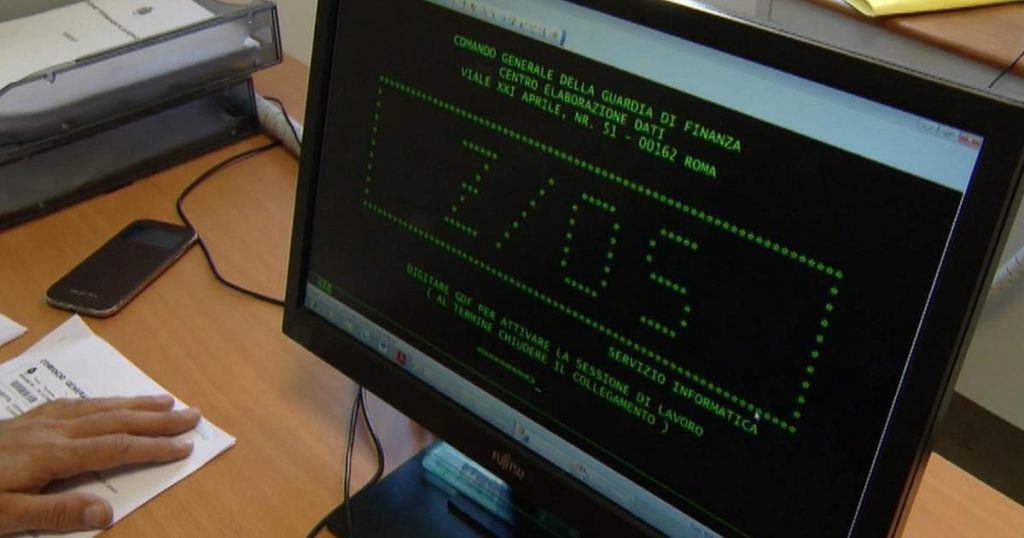Thousands of bank account holders’ names have been peeked at and monitored by a former employee of Intesa Sanpaolo. The focus is on military personnel, VIPs, and especially politicians, starting with premier Giorgia Meloni, her sister Arianna, head of FdI’s political secretariat, and also her ex-partner, journalist Andrea Giambruno, ministers Santanchè and Crosetto, Senate President Ignazio La Russa, and Dna prosecutor Giovanni Melillo. According to reports from the newspaper Domani, this “spying dossier” is at the center of an investigation by the Bari prosecutor’s office into a former bank employee who allegedly made over 6,000 “all abusive” accesses to various bank accounts. The employee was dismissed on August 8th after a disciplinary procedure was opened, and now faces significant consequences for potentially violating the confidentiality of highly sensitive data on political figures. The dismissal was followed by an ongoing investigation by the Bari prosecutor’s office, which is trying to understand the reasons behind these illegal accesses, a question that remains unanswered at present. The volume of accesses is said to be enormous and, unlike the Perugia investigation into leaks, these are not related to suspicious transactions or judicial inquiries, but to much more private and delicate information such as account movements.
The illegal accesses reportedly totaled almost 7,000, carried out between February 21, 2022, and April 24, 2024, and specifically targeted over 3,500 clients managed by 679 branches of Intesa Sanpaolo across Italy. Among those affected were non-government officials such as the governors of Puglia and Veneto, Michele Emiliano and Luca Zaia, Trani’s public prosecutor Renato Nitti, and officers from the police force and financial police. The investigation began almost by chance, thanks to the bank’s security team noticing something amiss. It will be up to the judiciary and the Privacy Guarantor, where a complaint from the bank is pending, to shed light on the potential consequences of what transpired.
In response to the news, premier Giorgia Meloni posted on social media a picture of herself with her sister and the headline “Shocking investigation in Bari: Meloni, Crosetto, and La Russa’s accounts spied on,” jokingly captioned with “Give us our daily spying dossier.” This highlights the seriousness of the situation and her frustration with the breach of privacy. The implications of such unauthorized access to personal and financial information can have far-reaching consequences, and those responsible must be held accountable for their actions. The violation of privacy, especially for public figures, raises concerns about surveillance and data protection in a digital age where personal information is increasingly vulnerable.
The ex-employee’s actions have raised concerns not only about the breach of privacy but also about the potential misuse of sensitive data for personal gain or malicious intent. The political implications of spying on high-profile figures add another layer of complexity to the situation, as the authorities investigate the extent of the breach and its repercussions. The sheer number of unauthorized accesses and the variety of individuals affected indicate a systematic targeting of specific groups, raising questions about the motives behind such actions and the potential impact on the victims. It remains to be seen how the investigation will unfold and what measures will be taken to prevent similar incidents in the future, safeguarding individuals’ privacy and data security.
The involvement of military personnel, VIPs, and politicians in the unauthorized access to bank accounts raises concerns about the potential risks and implications of such breaches. Public figures have a right to privacy and protection of their personal information, and any unauthorized access or monitoring of their accounts is a serious violation of this right. The investigation into the ex-employee’s actions and the repercussions for those affected will be crucial in determining accountability and preventing further breaches of privacy. The authorities and regulatory bodies must take swift action to address the issue and ensure that similar incidents are not repeated, restoring trust in the banking system and protecting individuals’ data from unauthorized access or misuse.


